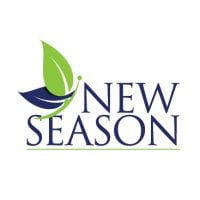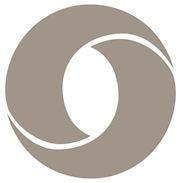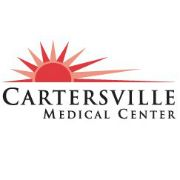Crossroads Treatment Center of Northwest Georgia
Drug Rehab Center in Ringgold, Georgia
Crossroads Treatment Center of Northwest Georgia in Ringgold, Georgia, offers addiction treatment services to individuals suffering from substance abuse disorders, alcoholism, opioid addiction, and dual diagnosis, focusing on evidence-based practices and providing comprehensive care to help individuals transition to a healthier and drug-free lifestyle.
About Crossroads Treatment Center of Northwest Georgia in Georgia
Crossroads Treatment Center of Northwest Georgia, located in Ringgold, GA, is a substance abuse rehab specializing in opioid use disorders. The facility accepts Medicaid, Medicare, and many commercial insurance plans.
- Crossroads offers outpatient treatment that combines medication-assisted treatment (MAT) with regular counseling, ensuring a comprehensive approach to combating opioid addiction.
- The facility utilizes FDA-approved medications such as Methadone, Suboxone, and Sublocade in their MAT programs, alongside personalized care plans that include individual or group counseling, toxicology, and medical care directed by on-site physicians.
- Crossroads emphasizes the importance of mental well-being and regular counseling sessions that address the root causes of addiction, equipping patients with coping strategies to rebuild their lives free from opioid influence.
Crossroads Treatment Center of Northwest Georgia is an accredited facility, recognized by LegitScript, SAMHSA, CARF, and holds a State License, ensuring the highest standards of care.
The center treats individuals struggling with alcoholism, opioid addiction, substance abuse, drug addiction, and dual diagnosis. They offer detoxification, aftercare support, and outpatient levels of care to provide individuals with the necessary tools and support for lasting recovery.
Genders
Ages
Modality
Additional
Accreditations
State License
SAMHSA

LegitScript

CARF
The Commission on Accreditation of Rehabilitation Facilities (CARF) is a non-profit organization that specifically accredits rehab organizations. Founded in 1966, CARF's, mission is to help service providers like rehab facilities maintain high standards of care.
Conditions and Issues Treated
Opioid addiction starts when a person becomes addicted to legal or illegal opioids. The addiction can happen quickly, in just a matter of days. Opioid withdrawal can be extremely uncomfortable and lead the user to continue to use even if they want to quit. Stopping using an opioid requires medical observation. Sometimes inpatient treatment with a medically supervised detox is necessary for managing the withdrawal process while learning lasting tools for maintaining recovery. Medications may be used in some cases of opioid addiction.
Opioid addiction is one of Georgia‘s most prominent forms of addiction. It’s treated by detoxifying the body so that the chemicals from the medications no longer impact them and by therapies to correct behavior and target the root of the problem.
Levels of Care Offered
This center offers a variety of custom treatment tailored to individual recovery. Currently available are Aftercare Support, Detox, Outpatient, with additional therapies available as listed below.
Detox is the first step of rehab. It involves giving a person time to get the toxins out of their body. During detox, the patient gets ill and they will often start using again to get rid of these unpleasant feelings. That’s why it’s so important to have a Ringgold medical professional at Crossroads Treatment Center of Northwest Georgia present. A Georgia medical professional will make sure patients don’t start using during detox. They will also provide medication to ease their symptoms and coach them through on a mental level.
Outpatient treatment is considered the lower intensity level of addiction treatment. It’s ideal for early phase addiction or lower intensity addictions. It may include weekly sessions instead of daily. It may include weekly sessions instead of daily. Peer group support, 12-step programs, and individual counseling may still be involved but at a lesser frequency than an intensive outpatient program. It is a good choice for someone who doesn’t need to go through a medically supervised detox and who has a supportive home environment. It requires motivation and dedication to commit to the program without constant monitoring.
Aftercare support should take place after outpatient treatment has ended. There are a few different types of aftercare support that patients can seek. These include 12 Step, Self-help groups (AA, NA), Therapeutic communities, Long-term, structured sober living arrangements, and Halfway houses (residential treatment centers).
Therapies & Programs
Individual therapy involves one-on-one sessions between the patient and therapist. It provides patients with a safe environment to openly discuss personal and sensitive issues with the therapist. They find the therapist as someone they can trust. Individual therapy aims to identify the core issues that would have led the patient to substance abuse and address them effectively. The therapist can develop patient-specific customized solutions through individual therapy, which aids speedier recovery.
Couples therapy works with clients and significant others in a professional capacity to improve relationship dynamics. This can be helpful for addicts who are trying to marry the idea of recovery into their work, family, social lives – any aspect that has to do with relationships.
Through counseling sessions, addicts will have an opportunity to talk about their addiction with professional partners. These partners can offer feedback and advice on how to get sober while keeping healthy relationships intact. A good couples therapist will help addicts understand their part in an unhealthy relationship dynamic or find ways to deal with anger or resentment from significant others outside of the home.
Family therapy is a group problem-solving that aims to improve communication and relationships between the addict, their family, and sometimes friends. The main goal of family therapy for drug addiction is to create an environment where communication can occur without judgment, hostility, or blame. The therapist is with the family as they learn to communicate differently, especially with the addict when s/he is using. The family can learn to reduce their enabling behavior or rally together and support each other during tough times.
An addict’s family can play a vital part in helping them to avoid relapse because they can spot the warning signs and help them get back on track before it becomes too much of a problem. Family therapy is one of the most effective ways to help addicts stay on the path to long-term sobriety. When a drug addict decides that they want to try and get sober, it takes the support of every person they love to succeed. It can be incredibly difficult for loved ones to watch an addict go through the pain and suffering of withdrawal, but by being there with them and supporting them, they can help to make sure that the addiction never returns.
Groups typically involve meetings with other recovering addicts who can relate to one another’s experiences. They might meet in person or online and typically focus on the process of staying sober rather than overcoming a specific addiction.
In these groups managed by Crossroads Treatment Center of Northwest Georgia, addicts can build a sense of community and develop strong emotional connections with others who understand what they are going through. These beneficial relationships can help addicts overcome their cravings and prevent relapse at any point during the recovery process.
Dialectical Behavior Therapy (DBT) is a type of therapy created in the late 1980s and early 1990s to help people with high rates of suicidal behavior. DBT helps people learn how to live a life that is no longer controlled by overwhelming emotions and urges. It is beneficial in treating drug addiction because it helps patients understand and cope with their cravings for drugs or alcohol rather than turning to those substances as a way of coping.
There is hope for people who are addicted to drugs and alcohol. Cognitive Behavioral Therapy (CBT) is the solution. CBT focuses on the underlying thoughts and behaviors that caused the addiction problem in the first place and may cause a relapse. This type of psychotherapy addresses negative feelings common in substance abuse disorders. It helps to change them by restructuring thought patterns. It’s about removing negative thoughts and providing long-term benefits while promoting self-awareness, self-control, and healthy ways to respond to negative thoughts. These sessions can be done by themselves or as part of combination therapy.
Since addiction is a chronic physical and mental illness, addicts need to learn as many life skills as possible. Many drug treatment centers offer life skills activities as part of their addiction recovery programs. Examples include cooking classes, employment training, resume writing seminars, parenting classes, and computer training. Life skills activities help addicts find employment, take care of their families, and give back to the community.
Payment Options Accepted
For specific insurance or payment methods please contact us.
Additional Details
Specifics, location, and helpful extra information.
Ringgold, Georgia 30736 Phone Number(706) 820-6087 Meta DetailsUpdated April 15, 2024
Staff Verified
Crossroads Treatment Center of Northwest Georgia Patient Reviews
There are no reviews yet. Be the first one to write one.
Ringgold, Georgia Addiction Information
Prescription opioid use has caused a large increase in the total amount of overdoses in Georgia. Almost 12% of the Georgia population uses illicit drugs each year, and slightly over 3.5% also abuses alcohol at the same time. This does not include those who binge-drink at least once a month, which includes 20% of all Georgians.
Treatment in Nearby Cities
- Cleveland, GA (85.3 mi.)
- Lilburn, GA (95.5 mi.)
- Calhoun, GA (34.7 mi.)
- Toccoa, GA (109.2 mi.)
- Statesboro, GA (262.3 mi.)
Centers near Crossroads Treatment Center of Northwest Georgia
The facility name, logo and brand are the property and registered trademarks of Crossroads Treatment Center of Northwest Georgia, and are being used for identification and informational purposes only. Use of these names, logos and brands shall not imply endorsement. RehabNow.org is not affiliated with or sponsored by Crossroads Treatment Center of Northwest Georgia.







